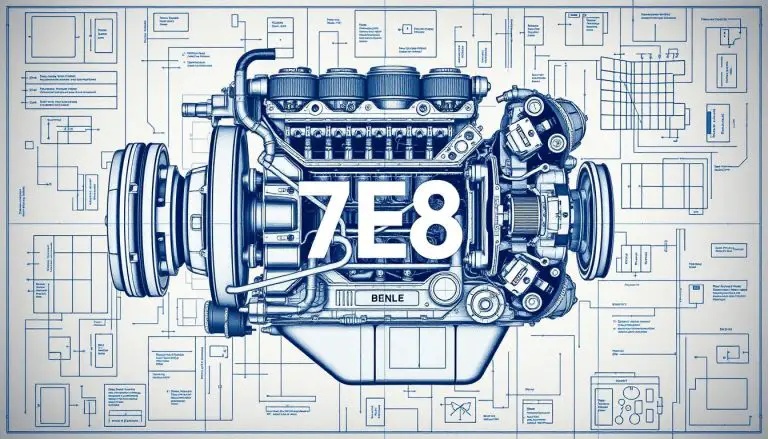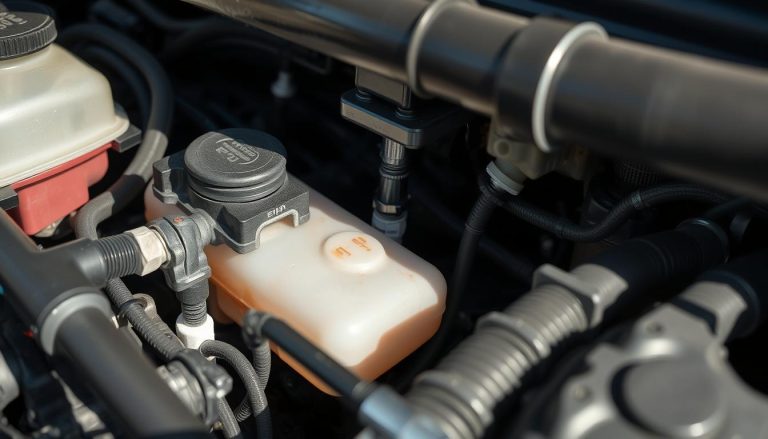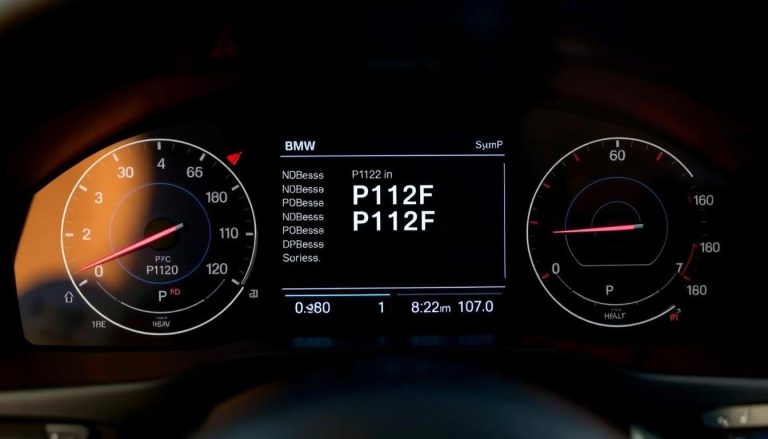When your check engine light flickers on, among the myriad of trouble codes that can pop up, one of them is the P0334 code. This little alphanumeric combination packs quite the punch when it comes to understanding what’s happening under your car’s hood.
Let’s dive into everything you need to know about this pesky knock sensor issue! From its causes and symptoms to effective diagnosis and repair solutions, we’ll unravel all aspects surrounding the P0334 code.
What does the P0334 code mean?
The P0334 code refers to an issue with the knock sensor circuit, specifically for Bank 2 in your vehicle. The knock sensor plays a crucial role in monitoring engine vibrations and detecting knocking or pinging sounds that can harm performance.
When this code appears, it indicates an intermittent problem within the Knock Sensor 2 circuit on Bank 2. It’s like your car is trying to tell you something isn’t quite right in its tuning.
Modern engines rely heavily on precise timing adjustments for optimal function. If the knock sensor isn’t working correctly, it may lead to inefficient combustion and even engine damage over time.
Understanding this code helps pinpoint where issues might arise before they escalate into more significant problems. So when you see P0334 flash up, it’s essential not just to ignore it but investigate further!
What parts can be affected by P0334 code ?
The P0334 code primarily affects the knock sensor itself. This component is crucial for monitoring engine vibrations, allowing the ECU to adjust timing and prevent damage.
Wiring harnesses related to the knock sensor can also be impacted. Damaged or corroded wires may disrupt signals, leading to intermittent issues.
Additionally, engine control units (ECUs) might experience problems as they rely on accurate data from the knock sensor to function properly.
Other components such as spark plugs and fuel injectors could feel indirect effects due to improper timing adjustments made by the ECU in response to inaccurate readings.
A malfunctioning exhaust system may also arise since incorrect ignition timing can lead to increased emissions and affect vehicle performance overall. Each part plays a role in maintaining optimal engine operation when dealing with the P0334 code.
What are the possible causes of a P0334 code?
Several factors can trigger a P0334 code. One primary culprit is a faulty knock sensor itself. This component monitors engine vibrations and adjusts performance accordingly. If it malfunctions, it may send incorrect signals to the Engine Control Module (ECM).
Wiring issues are another common cause. Damaged or corroded wires connected to the knock sensor can disrupt communication with the ECM, leading to intermittent readings.
Additionally, problems with the engine’s mechanical components might contribute as well. An improper air-fuel mixture or timing issues could lead to abnormal vibrations that confuse the sensor.
Software glitches in the ECM might also play a role. A simple update may be all that’s needed for resolution without any hardware changes required. Each of these causes deserves careful inspection during diagnosis to pinpoint and rectify effectively.
What are the common symptoms of a P0334 code?
When your vehicle triggers the P0334 code, a few noticeable symptoms may arise. One of the first signs is engine performance issues. You might experience reduced power or sluggish acceleration.
Another common symptom is unusual engine noise. This can manifest as knocking sounds, which are often linked to improper timing or fuel combustion.
You may also notice vibrations during idle or while driving. These vibrations can indicate that the knock sensor isn’t effectively monitoring detonation levels.
In some cases, the check engine light will illuminate on your dashboard. Ignoring it could lead to further complications down the road.
Pay attention to increased fuel consumption. If your car is using more gas than usual, this could be another red flag related to the P0334 code lurking in your system.
What are the diagnostic steps for a P0334 code?
When diagnosing a P0334 code, the first step is to gather information. Use an OBD-II scanner to confirm the error and check for other related codes.
Next, visually inspect the wiring and connectors leading to the knock sensor. Look for signs of damage or corrosion that could affect signal transmission.
Afterward, perform a resistance test on the knock sensor using a multimeter. This will help determine if it’s functioning within specifications.
Check the engine’s grounding system as well. Poor grounds can cause intermittent issues that trigger erroneous codes.
Consider road testing under varying conditions while monitoring live data from your diagnostic tool. This will provide insight into how the vehicle behaves in real-time, helping you pinpoint any irregularities linked to this code.
How serious Is the P0334 Code? Can I continue driving with the P0334 code?
The P0334 code indicates an issue with the knock sensor circuit in Bank 2. This can lead to improper engine timing and performance problems.
Driving with this code is not advisable. Ignoring it may cause more serious issues, like engine knocking or damage over time.
You might notice decreased fuel efficiency or rough idling as the vehicle compensates for incorrect information from the knock sensor. These symptoms can worsen if you continue driving without addressing the problem.
While your car may still run, pushing it could result in costly repairs down the line. It’s best to have a professional diagnose and address any underlying concerns associated with the P0334 code promptly.
What are the repair solutions for a P0334 – Knock Sensor 2 Circuit Intermittent Bank 2 ?
Repairing a P0334 code often begins with inspecting the knock sensor itself. If it’s damaged or malfunctioning, replacing it is typically necessary.
Wiring issues can also contribute to this error. Check for corrosion, frayed wires, or loose connections that might disrupt communication between the sensor and the engine control unit (ECU). Repairing or replacing any faulty wiring can solve the problem.
In some cases, reflashing or reprogramming the ECU may be required if it’s misinterpreting signals from the knock sensor. This step ensures your vehicle’s computer accurately processes vital information.
If you’ve ruled out these components but still see codes appearing, consider examining other related systems such as ignition timing and fuel delivery. Sometimes an underlying issue in these areas could trigger multiple trouble codes alongside P0334. Address those problems comprehensively to restore optimal performance.
How long and How much does it cost to diagnose and repair a P0334 code?
Diagnosing a P0334 code typically takes about one to two hours at a professional shop. Mechanics will usually charge an hourly rate, which can range from $75 to $150 depending on the location and expertise of the technician.
Once diagnosed, repair costs vary greatly based on what’s causing the issue. If it’s just a wiring problem or a loose connection, you might only pay for labor—around $100 to $200. However, replacing an entire knock sensor could set you back anywhere between $300 and $600 due to parts and additional labor.
It’s wise to ask for an estimate upfront so there are no surprises later. Always remember that investing in proper diagnostics now may save more extensive repairs down the line.
How can I avoid a P0334 code?
Regular maintenance is key to preventing the P0334 code. Ensure your engine’s knock sensors are inspected during routine check-ups. Keeping up with oil changes also helps, as dirty oil can affect sensor performance.
Be proactive about addressing engine noises or irregularities. If you hear knocking sounds, seek professional help immediately. Ignoring these signs may lead to more serious issues down the line.
Additionally, using high-quality fuel can support optimal engine performance, reducing the risk of misfires that might trigger a P0334 code.
Maintaining proper electrical connections and avoiding corrosion around components will also go a long way in ensuring everything functions smoothly.
What happens if you ignore a P0334 code?
Ignoring a P0334 code can lead to serious engine performance issues. The knock sensor plays a crucial role in detecting engine vibrations and ensuring optimal timing. Without proper functioning, your vehicle may experience reduced power and efficiency.
Over time, persistent knocking or pinging sounds might develop. This not only affects driving comfort but could also damage critical engine components if left unchecked.
Fuel economy often suffers too. You might find yourself making more frequent stops at the gas station as the vehicle struggles to maintain its efficiency.
Additionally, neglecting this issue may trigger other trouble codes. Addressing one problem can prevent a cascade of complications that complicate repairs down the line.
Long-term neglect risks extensive damage leading to costly repairs or even needing an entire engine replacement. It’s wise to address any warning signs promptly rather than waiting for them to escalate further.
Is the P0334 code specific to certain car makes or models?
The P0334 code is not exclusive to specific car makes or models. It can occur in a variety of vehicles, often depending on engine type and design.
Many manufacturers utilize knock sensors as part of their engine management systems. This means that both domestic and foreign cars may display this code at some point.
However, certain brands might have more frequent reports of the P0334 due to the design of their engines or sensor placements. Vehicles with complex electronic systems are sometimes more prone to these issues.
It’s important for owners to be aware that while the symptoms can manifest similarly across different vehicles, diagnosing and fixing them might vary greatly between manufacturers. Always refer to your vehicle’s service manual for accurate information tailored specifically for your make and model when dealing with a P0334 code.
What other codes may be related to P0334?
When dealing with the P0334 code, it’s important to be aware of other potential trouble codes that may appear alongside it. These can help pinpoint the exact issue and streamline your repair process. Codes like P0325 (Knock Sensor 1 Circuit Malfunction), P0330 (Knock Sensor 1 Circuit Intermittent Bank 2), and P0420 (Catalytic Converter Efficiency Below Threshold) are often related.
If multiple codes arise, they could indicate a more extensive problem within your vehicle’s engine management system. Addressing these issues promptly can prevent further damage and ensure optimal performance.
Understanding how interconnected these systems are will aid in efficient troubleshooting. If you see the P0334 code, take note of any accompanying codes for a clearer picture of what might be going wrong under the hood.


